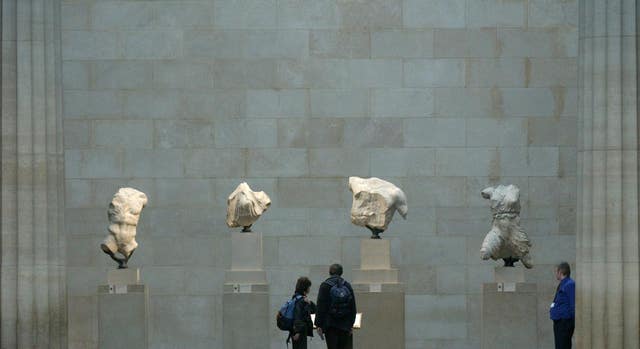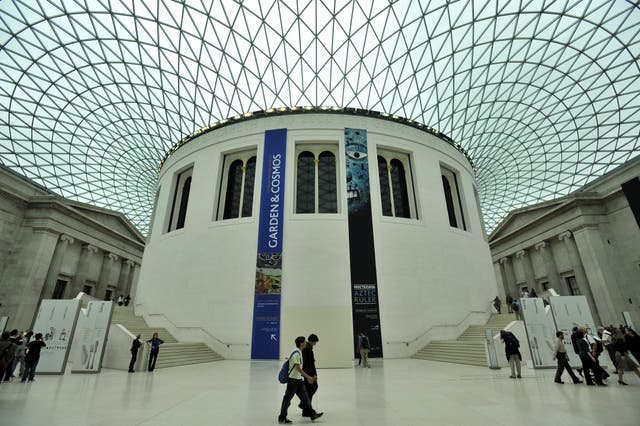Stephen Fry has called for the Elgin Marbles to be returned to Athens from the British Museum.
The Marbles, or Parthenon Sculptures, have long been the subject of dispute over their home in the London museum, where they have been on permanent public display since 1817.
The actor and television presenter called on the UK to “stand on the right side of history” by returning the artefacts, which were originally displayed at the Parthenon in Athens, to their original home.

Greek governments have called for their return since the 1980s and their continued presence in the British Museum has been touted as a possible sticking point in negotiations between the UK and the EU on their future trading relationship.
Fry shared a petition on Twitter which called for the British Museum “to accept repatriation requests”.
The webpage for the petition added that “the Government should be responsive to global calls for artefacts to be returned to their place of origin”.
Britain, let’s stand on the right side of history and return the Parthenon Sculptures to their home in Athens. Please sign the @ReuniteMarbles petition to give power to the Trustees of the British Museum to consider their reunification #LostMyMarbles https://t.co/hTXF2XBKN8 pic.twitter.com/R813nfCUxZ
— Stephen Fry (@stephenfry) November 3, 2020
Fry tweeted: “Britain, let’s stand on the right side of history and return the Parthenon Sculptures to their home in Athens.
“Please sign the @ReuniteMarbles petition to give power to the Trustees of the British Museum to consider their reunification #LostMyMarbles.”
Fry reportedly called for the Elgin Marbles to be returned to Greece in a debate in 2012 with former MP Tristram Hunt, who is now the director of the V&A.
The petition shared by Fry also called for the return of the British Museum’s Benin Bronzes, a group of heirlooms stolen during an invasion of Benin City, Nigeria, by the British in 1897.

A spokeswoman for the British Museum said: “The collection is a unique resource to explore the richness, diversity and complexity of all human history, and our shared humanity.
“The strength of the collection is its breadth and depth, which allows millions of visitors an understanding of the cultures of the world and how they interconnect – whether through trade, migration, conquest, conflict or peaceful exchange.
“The British Museum enjoys a good professional relationship with the Acropolis Museum, which in recent years has included scholarly workshops, staff and placements and knowledge sharing.”
